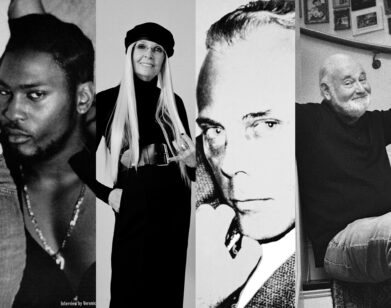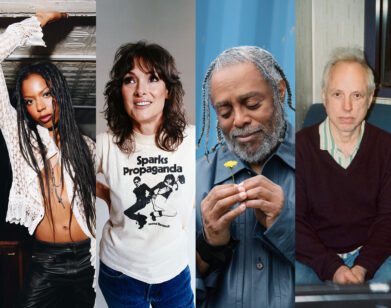Troian Bellisario
TROIAN BELLISARIO IN NEW YORK, APRIL 2017. PHOTOS: BRIDGET FLEMING. STYLING: ESTHER MATILLA. HAIR: DAVID COLVIN USING ORIBE. MAKEUP: MIN MIN MA FOR HONEY ARTISTS.
“Everyone keeps asking me, ‘What’s next?'” says Troian Bellisario over the phone. She is talking to her longtime friend and occasional Pretty Little Liars director, Lesli Linka Glatter. “I truly feel like Pretty Little Liars was my first step in my career, my foundation. The same thing with [new film] Feed—it’s the first step not only in the world of filmmaking for me, but as a writer. Now I just want to feel like there’s forward momentum,” she continues. “I think it’s up to me to continue to create my own opportunities.”
Raised in Los Angeles, Bellisario grew up in the film and television industry: her father is the writer, director, and producer Donald P. Bellisarion (NCIS; Quantum Leap; Magnum, P.I.) and her mother is the director, producer, and former actor Deborah Pratt. Since graduating from USC in 2009, Bellisario has been working constantly. For the last seven years, she’s starred as Spencer in the television drama Pretty Little Liars, which is currently in its last season. Earlier this month she made her directorial debut on the show, and in July she will release Feed, the movie she wrote and stars in based on her personal experiences with an eating disorder.
LESLI LINKA GLATTER: Hi, Troian. It’s great to hear your voice.
TROIAN BELLISARIO: Hi. Where are you right now?
GLATTER: I am in L.A. on the Universal lot, believe it or not. I’m in the Johnny Carson Building. This is where I had my first deal, so it’s like coming back to the old hunting grounds. Having only shot outside of L.A. for years, it’s a trip to be back on the lot.
BELLISARIO: Does it feel smaller than you remember?
GLATTER: No, it doesn’t feel smaller, but I remember my shock and awe as a modern dancer, choreographer coming on the lot for the first time. I still feel the magic of being a storyteller, and I loved that, but I don’t have the same thing from when I was first here and I saw people in costumes and backlots and sets—the Norman Bates house on the hill, the New York street, the French village. Just the whole fantasyland of it all. One of the things that’s so amazing to me, Troian, is I realized we actually met through your mother.
BELLISARIO: Yes.
GLATTER: It wasn’t the classic, just meeting on an audition; it was a much more personal first meeting. You were really young. Your mother, Deborah Pratt, and I met while I was teaching a class at the American Film Institute—a directing workshop for women. Deborah was one of the women in that program and we immediately connected. I got to know your family and immediately when I met you, I thought, “Who is this young, incredible person?” That has continued as I’ve gotten to know you.
BELLISARIO: I remember coming over to your house or hanging around with Nick.
GLATTER: With Nick, my son, and your brother, Nick. The two Nicks.
BELLISARIO: The two Nicks. I remember being in awe of the work that you were doing. When I found out you were going to be in the room in one of the callbacks for Pretty Little Liars, I remember having a conversation with you just saying, “I’ve never really done this.” I grew up running around the Universal backlot, but auditioning for pilots was something totally new. I’ll never forget the conversation you and I had about what a job like this would mean, what it would entail if I were to do the pilot, and what you saw this story being.
GLATTER: The thing that was so ironic about all of this is [I.] Marlene King, who created Pretty Little Liars, and I had done a movie together, Now and Then [1995]. She had written, I had directed, and we’d had had an amazing experience together. When she sent me Pretty Little Liars, I thought, “It’s just wicked enough and has a really interesting edge to it, and yet it’s about real emotions and has got this mystery to it.” I didn’t know, but they had already read you, and I turned on the tape and there you were. You were at USC and you had done the very intense actor-theater program, so you were a real trained actress. I was blown away by the depth of your work. It’s really exciting to see you develop, now becoming a writer and director.
BELLISARIO: Thank you. I know you told me the story once before, but it’s so fascinating to me. Would you mind talking about the exact moment that you switched from being a successful dancer into a different kind of storytelling?
GLATTER: Yes, it is a crazy story. I was a modern dancer and a choreographer, and had spent six years in Paris and London. Then I got a grant to teach, choreograph, and perform throughout the Far East. I was based in Japan, in Shibuya, [Tokyo] and I wanted a cup of coffee. There were two coffee shops—one on the right and one on the left—and I very arbitrarily picked the one on the right, and my life changed forever. In that coffee shop was a Japanese man in his mid-70s. There was only one seat left—it was packed—and it was at his table. He waved me over and I sat down with him, and I didn’t leave the coffee shop for another six hours. He spoke 12 languages and had been the top foreign war correspondent and had literally worked all over the world. He had been a Buddhist monk, and was head of cultural affairs for The Asahi Shimbun paper at the time. He became like my Japanese father and eventually told me a series of stories that were extraordinary and profound. They all happened on Christmas Eve, even though he was Buddhist, during different wars, and were all about human connection. When he told me these stories, I knew I had to pass them on and I knew it wasn’t dance. If I had not walked in that coffee shop, I would still be a choreographer.
BELLISARIO: What was it about the stories that dance—
GLATTER: Wasn’t the medium? I felt like I needed to tell the actual narrative story. Dance goes deep into the subconscious and the story underneath, but it doesn’t tell you the literal narrative. It works in a different way, on a different level. I felt I had been given these stories for a reason, and that’s what became my first film. I did everything I was told not to do if I wanted a job in Hollywood: the film was three quarters in Japanese, had flashbacks, narration, was a period piece set in World War II, and had one Caucasian character in it. But I didn’t care because I wanted to tell that particular story. I know your writing comes from a very beautiful and profound place. As an actor, you’re always exploring, but it’s really fascinating to me that you have made that choice to be in the driver’s seat. Tell me a little about that and what you’ve been working on.
BELLISARIO: I think it really stems from my parents telling me that if there is a story you feel compelled to share, then you are responsible for doing that. You can’t ask someone else to take on that story—or you can, but you have to deal with whatever the fallout is. If the story doesn’t end up being told the way you originally heard it or that you feel it needs to be expressed, that’s on you. Right before I got Pretty Little Liars, I graduated and I got a job at the Geffen [Playhouse in Los Angeles] to do a production of a play called Equivocation.
GLATTER: You were the lead in that play, right?
BELLISARIO: I was the only female in it—there were four other guys—and I was definitely the youngest. It was a really intense first job and I knew that I was going to be so nervous and that I couldn’t really go out and audition for other things. There was this emptiness in me that I wanted to, not fill, but engage. I felt like there was a story in me that hadn’t been told, and it was a very personal story and it came from a point in my life when I felt like I had experienced something and, still to this day, I couldn’t get anyone—even the people who loved me the most, even my boyfriend or my mother or my father—to understand what that experience was truly like for me. It was about my eating disorder, and I found there were so many people who thought that it was about losing weight or being skinny, and I couldn’t quite get them to understand that it was about control on a very, very literal level. So I thought, “If I can tell a story that puts the audience in a position to make a similar choice to the one that I made in my young life, maybe I could get them to empathize.”
GLATTER: So many people wait and don’t take the active measure to go create something; they’ll be more reactive. The fact that you have taken that step, as well as being an actor in other people’s work, I think that’s an incredible balance to strike in your storytelling career. Did people understand—did your family and boyfriend and the people around you? I remember reading the script and thinking, “This is really powerful and personal and very moving.”
BELLISARIO: Thank you. They were all very supportive. They were all very afraid, which I totally understand. They’d been through hell watching me and feeling powerless themselves. And here I was saying, “Hey guys, I know that I’ve gone through a lot of therapy and a lot of heartbreak to make myself strong enough to live without this thing, but I’m actually going to make a movie where I go back and engage with it fully.” It was not easy; it was like engaging with an addiction. One of the things I really wanted the film to explore was that once you have this relationship, once you have this mental illness or this disease, it never really goes away. Your synapses are wired in a way that you will always feel this compulsion, but as you grow older and create a healthier life and go through lots of therapy, you tend to feel more empowered when it comes to making these choices. My neural pathways were all still there and connected to the disease, so when I had to engage with the film, it was like poking a sleeping dragon. It was amazing for me to realize, “Oh god, this is still all just lying under the surface. I’ve just gotten really good at either ignoring it or choosing to not engage with it.” But it’s amazing that you can have this huge, life-threatening thing be a part of you and still live inside of you, and almost tame it in a weird way.
GLATTER: Right. And by doing that, empowering other men and women who have that same issue to be able to see it in another way.
BELLISARIO: That’s what I hope, and that’s why, for me, it had to be a film. It couldn’t be a documentary about my own experience, it couldn’t just be me telling the details of my story; it had to be a narrative that wasn’t about me.
GLATTER: When you were a kid growing up with parents in the film and television business, was it something that you fanaticized about doing? Was it a world that you wanted to be part of?
BELLISARIO: Yeah. That was a world that I knew and that I saw both my mother and father so deeply in love with and engaged with. Growing up on a set, I felt like that was a microcosm that I would always be in. I didn’t know if I was going to be at video village with you or my mom or my dad, or if I was going to be in the writers room, or if I was going to be in costume or set design or hair and makeup, [but] it was the world I knew best. Even as I got older, I started finding that the jobs I so desperately wanted were all connected to a story. For a while, I was like, “I want to be a paleontologist,” and I realized it was because I had seen Jurassic Park. Then I was like, “I want to be a criminal pathologist,” because I had just watched Silence of the Lambs. I realized, with these different jobs, I had connected with a story about them. I wanted to inhabit not just one world, but lots of different worlds.
GLATTER: That’s really interesting. I wanted to be an astronaut, so between us we would’ve covered a lot of fields there. But it’s interesting that storytelling is what linked you to all of it, and when you get to the core, that’s the thing you wanted to do, whatever place in the business that was going to lead you.
BELLISARIO: It’s been an interesting shift for me, and Pretty Little Liars has really supported it, to jump from actor to writer to director. Even though I wrote Feed before I got the role of Spencer, I didn’t produce anything or write anything that was immediately made until I was on the set of Pretty Little Liars and I found myself sort of frustrated. I found myself attempting to communicate something in a scene, and somebody had the realist point of view, where they were like, “Can you just say the line? Let’s get a move on because we’ve got to get this.” I was so indignant and frustrated, and then I realized, “No, Troian, your job is to be here and say this line. If you want to get creative fulfillment or tell a [particular] story, you have to make that your job and create that opportunity for yourself.” And on the turnaround on the first season of Pretty Little Liars, I wrote my first short film. Then I marched into [Pretty Little Liars producer] Lisa Cochran’s office and said, “How do you produce a short film?” And she—because she’s amazing—sat me down and said, “Here’s how you produce something.” Then I went to Richard in transport, and I said, “How do I get a car? I need an Airstream trailer.” I ended up using Pretty Little Liars as my own school for writing and producing, and eventually for directing.
GLATTER: That’s fantastic. How was directing Pretty Little Liars? Obviously this is a show that you had been on for a long time, what was that experience like?
BELLISARIO: I think it’s very similar to you; anytime you come back and direct an episode, or even when you’re on the lot and you walk past, it’s like a homecoming. There’s such a family there. Even though I was being given the reins, I honestly felt like, “Guys, let’s just take this party bus and go on the road together. Let’s just make the most fun home movie.” That’s what it felt like after seven years of living on these sets and working with this crew—it felt like we were getting the family together to make something that was entirely our own. You also really know what people are capable of and what people are going through, not just in their own lives, but also artistically. I felt like there were a lot of moments, because I was in this director’s position, where I could look at Lucy [Hale] and say, “I know you’ve been wanting to explore this aspect of your character for seven years, I want you to lean into that for this take.” Then I could watch her as an artist go in and do that. It felt like a different kind of access. I imagine it’s the same thing for you on Homeland.
GLATTER: Yes, it is very intimate and I’m very lucky to be working with Claire Danes, who is one of the more fearless actors I’ve ever been around and also an incredible human being who is fortunately nothing like her character. Is there is something more you want from a director now that you’ve been on both sides of the camera?
BELLISARIO: I do find that now that when I go in to meet with a director, the thing that I am most interested in is their voice. I mean that visually as well as the way that they will tell the story or the way that they will work with me as an actor. Now that I’ve learned to make a shot list and learned to cover a scene, it’s not about reinventing the wheel, but you have to have a point of view. I want someone who has a vision for this story, who wants to tell it set to this rhythm, this pace, this color.
SEASON SEVEN OF PRETTY LITTLE LIARS AIRS TUESDAY NIGHTS ON FREEFORM. FEED WILL COME OUT ON VoD AND ACROSS ALL DIGITAL PLATFORMS ON JULY 18, 2017. LESLI LINKA GLATTER IS AN OSCAR- AND EMMY-NOMINATED DIRECTOR AND PRODUCER, AND FORMER CHOREOGRAPHER AND DANCER. HER WORK SPANS BOTH FILM AND TELEVISION, AND HER CREDITS INCLUDE TWIN PEAKS, NOW AND THEN, GILMORE GIRLS, THE WEST WING, FREAKS AND GEEKS, THE LEFTOVERS, AND RAY DONOVAN. SHE IS CURRENTLY AN EXECUTIVE PRODUCER OF HOMELAND AND IS WORKING ON A NEW SERIES FOR NBC, LAW & ORDER: TRUE CRIME, BASED ON THE MENENDEZ BROTHERS’ CASE.







